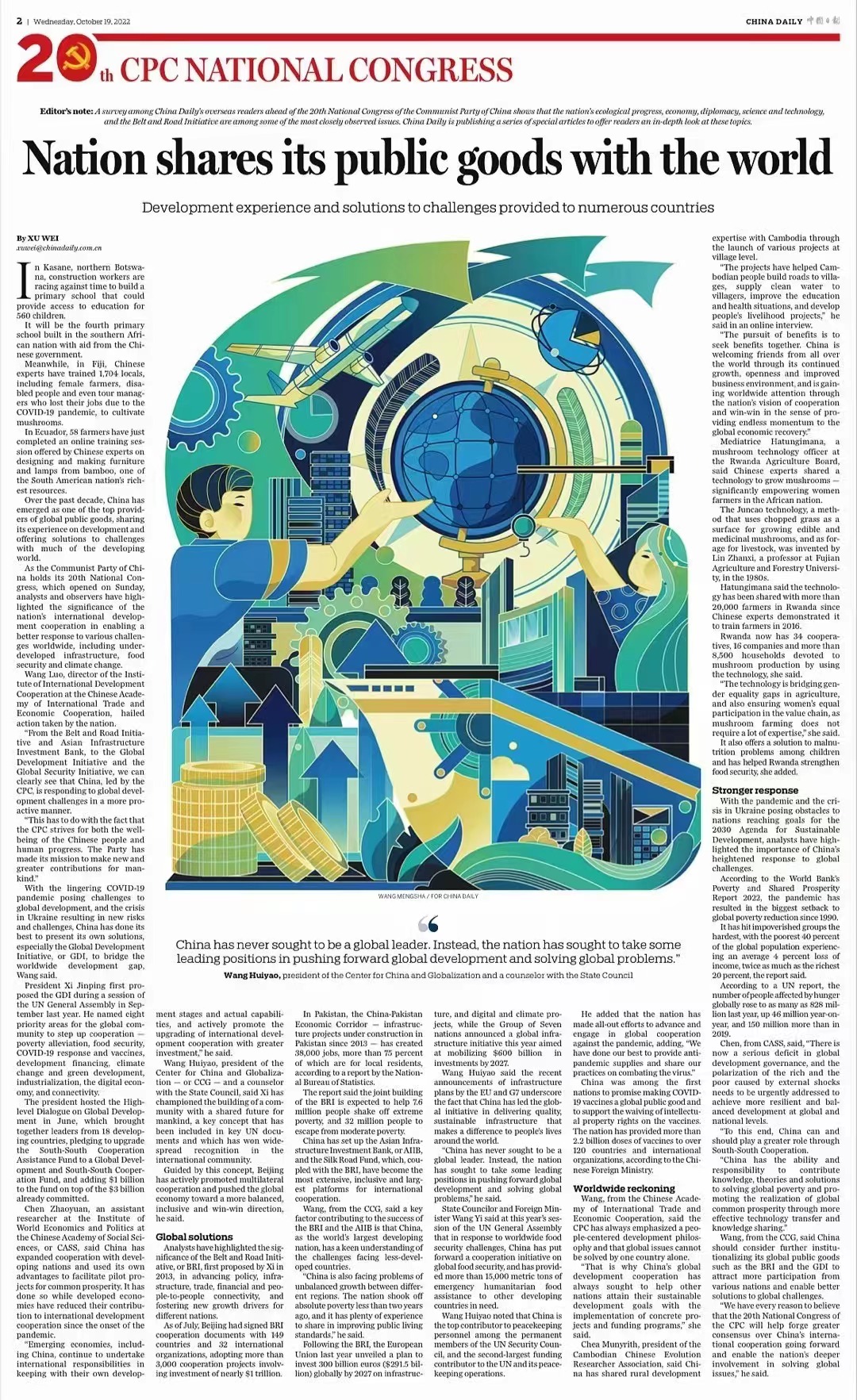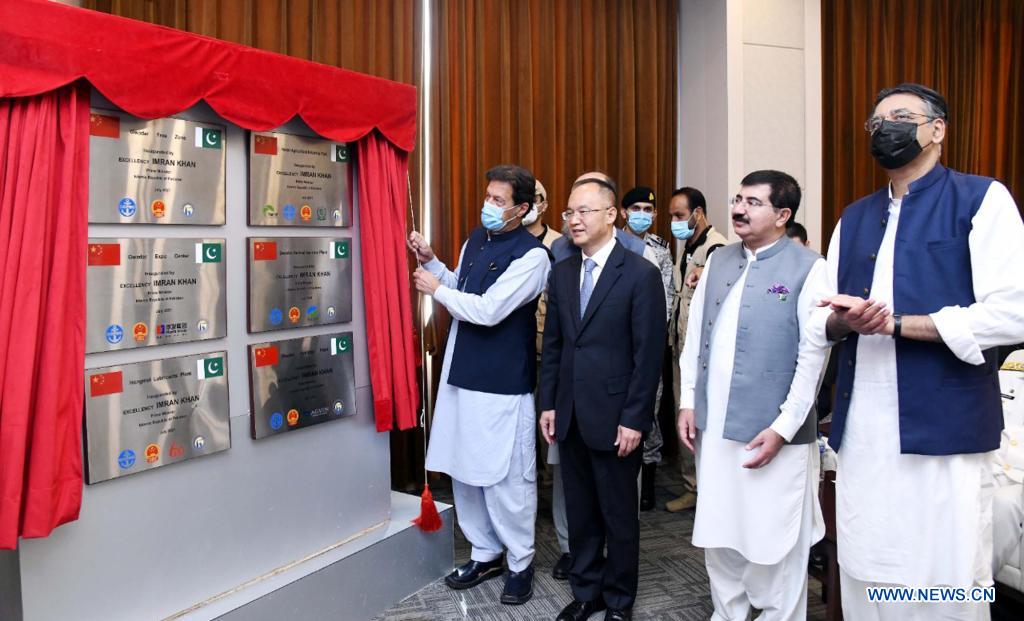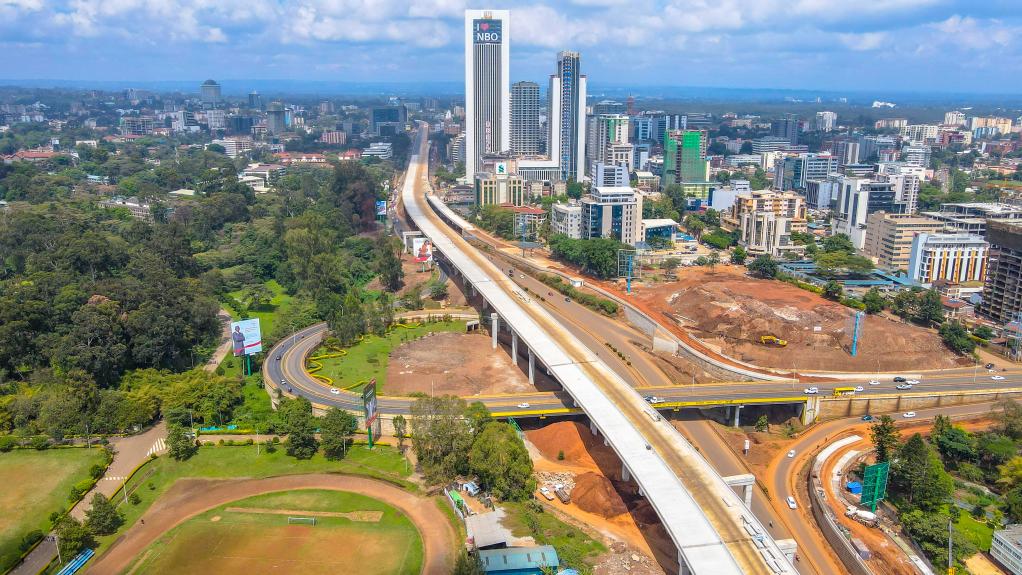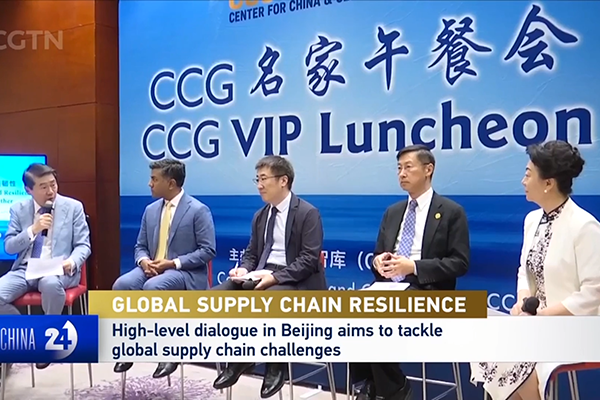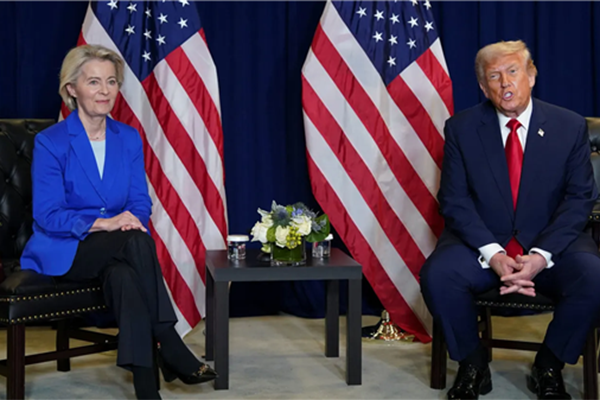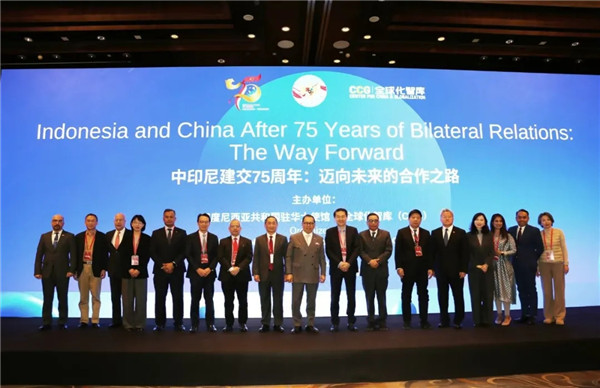【China Daily】Nation shares its public goods with the world
October 19 , 2022Editor’s note: A survey among China Daily’s overseas readers ahead of the 20th National Congress of the Communist Party of China shows that the nation’s ecological progress, economy, diplomacy, science and technology, and the Belt and Road Initiative are among some of the most closely observed issues. China Daily is publishing a series of special articles to offer readers an in-depth look at these topics.
Development experience and solutions to challenges provided to numerous countries
In Kasane, northern Botswana, construction workers are racing against time to build a primary school that could provide access to education for 560 children.
It will be the fourth primary school built in the southern African nation with aid from the Chinese government.
Meanwhile, in Fiji, Chinese experts have trained 1,704 locals, including female farmers, disabled people and even tour managers who lost their jobs due to the COVID-19 pandemic, to cultivate mushrooms.
In Ecuador, 58 farmers have just completed an online training session offered by Chinese experts on designing and making furniture and lamps from bamboo, one of the South American nation’s richest resources.
Over the past decade, China has emerged as one of the top providers of global public goods, sharing its experience on development and offering solutions to challenges with much of the developing world.
As the Communist Party of China holds its 20th National Congress, which opened on Sunday, analysts and observers have highlighted the significance of the nation’s international development cooperation in enabling a better response to various challenges worldwide, including underdeveloped infrastructure, food security and climate change.
Wang Luo, director of the Institute of International Development Cooperation at the Chinese Academy of International Trade and Economic Cooperation, hailed action taken by the nation.
“From the Belt and Road Initiative and Asian Infrastructure Investment Bank, to the Global Development Initiative and the Global Security Initiative, we can clearly see that China, led by the CPC, is responding to global development challenges in a more proactive manner.
“This has to do with the fact that the CPC strives for both the wellbeing of the Chinese people and human progress. The Party has made its mission to make new and greater contributions for mankind.”
With the lingering COVID-19 pandemic posing challenges to global development, and the crisis in Ukraine resulting in new risks and challenges, China has done its best to present its own solutions, especially the Global Development Initiative, or GDI, to bridge the worldwide development gap, Wang said.
President Xi Jinping first proposed the GDI during a session of the UN General Assembly in September last year. He named eight priority areas for the global community to step up cooperation — poverty alleviation, food security, COVID-19 response and vaccines, development financing, climate change and green development, industrialization, the digital economy, and connectivity.
The president hosted the High-level Dialogue on Global Development in June, which brought together leaders from 18 developing countries, pledging to upgrade the South-South Cooperation Assistance Fund to a Global Development and South-South Cooperation Fund, and adding $1 billion to the fund on top of the $3 billion already committed.
Chen Zhaoyuan, an assistant researcher at the Institute of World Economics and Politics at the Chinese Academy of Social Sciences, or CASS, said China has expanded cooperation with developing nations and used its own advantages to facilitate pilot projects for common prosperity. It has done so while developed economies have reduced their contribution to international development cooperation since the onset of the pandemic.
“Emerging economies, including China, continue to undertake international responsibilities in keeping with their own development stages and actual capabilities, and actively promote the upgrading of international development cooperation with greater investment,” he said.
Wang Huiyao, president of the Center for China and Globalization — or CCG, said Xi has championed the building of a community with a shared future for mankind, a key concept that has been included in key UN documents and which has won widespread recognition in the international community.
Guided by this concept, Beijing has actively promoted multilateral cooperation and pushed the global economy toward a more balanced, inclusive and win-win direction, he said.
Pakistani Prime Minister Imran Khan (first from left) unveils project plates during a groundbreaking ceremony of several projects in Gwadar, Pakistan, on July 5, 2021. [Photo/Xinhua]
Global solutions
Analysts have highlighted the significance of the Belt and Road Initiative, or BRI, first proposed by Xi in 2013, in advancing policy, infrastructure, trade, financial and people-to-people connectivity, and fostering new growth drivers for different nations.
As of July, Beijing had signed BRI cooperation documents with 149 countries and 32 international organizations, adopting more than 3,000 cooperation projects involving investment of nearly $1 trillion.
In Pakistan, the China-Pakistan Economic Corridor — infrastructure projects under construction in Pakistan since 2013 — has created 38,000 jobs, more than 75 percent of which are for local residents, according to a report by the National Bureau of Statistics.
The report said the joint building of the BRI is expected to help 7.6 million people shake off extreme poverty, and 32 million people to escape from moderate poverty.
China has set up the Asian Infrastructure Investment Bank, or AIIB, and the Silk Road Fund, which, coupled with the BRI, have become the most extensive, inclusive and largest platforms for international cooperation.
Wang, from the CCG, said a key factor contributing to the success of the BRI and the AIIB is that China, as the world’s largest developing nation, has a keen understanding of the challenges facing less-developed countries.
“China is also facing problems of unbalanced growth between different regions. The nation shook off absolute poverty less than two years ago, and it has plenty of experience to share in improving public living standards,” he said.
Following the BRI, the European Union last year unveiled a plan to invest 300 billion euros ($291.5 billion) globally by 2027 on infrastructure, and digital and climate projects, while the Group of Seven nations announced a global infrastructure initiative this year aimed at mobilizing $600 billion in investments by 2027.
Wang Huiyao said the recent announcements of infrastructure plans by the EU and G7 underscore the fact that China has led the global initiative in delivering quality, sustainable infrastructure that makes a difference to people’s lives around the world.
“China has never sought to be a global leader. Instead, the nation has sought to take some leading positions in pushing forward global development and solving global problems,” he said.
State Councilor and Foreign Minister Wang Yi said at this year’s session of the UN General Assembly that in response to worldwide food security challenges, China has put forward a cooperation initiative on global food security, and has provided more than 15,000 metric tons of emergency humanitarian food assistance to other developing countries in need.
Wang Huiyao noted that China is the top contributor to peacekeeping personnel among the permanent members of the UN Security Council, and the second-largest funding contributor to the UN and its peacekeeping operations.
He added that the nation has made all-out efforts to advance and engage in global cooperation against the pandemic, adding, “We have done our best to provide anti-pandemic supplies and share our practices on combating the virus.”
China was among the first nations to promise making COVID-19 vaccines a global public good and to support the waiving of intellectual property rights on the vaccines. The nation has provided more than 2.2 billion doses of vaccines to over 120 countries and international organizations, according to the Chinese Foreign Ministry.
A Chinese expert checks the growth of rice with farmers in Abuja, Nigeria. [Photo/CHINA DAILY]
Worldwide reckoning
Wang, from the Chinese Academy of International Trade and Economic Cooperation, said the CPC has always emphasized a people-centered development philosophy and that global issues cannot be solved by one country alone.
“That is why China’s global development cooperation has always sought to help other nations attain their sustainable development goals with the implementation of concrete projects and funding programs,” she said.
Chea Munyrith, president of the Cambodian Chinese Evolution Researcher Association, said China has shared rural development expertise with Cambodia through the launch of various projects at village level.
“The projects have helped Cambodian people build roads to villages, supply clean water to villagers, improve the education and health situations, and develop people’s livelihood projects,” he said in an online interview.
“The pursuit of benefits is to seek benefits together. China is welcoming friends from all over the world through its continued growth, openness and improved business environment, and is gaining worldwide attention through the nation’s vision of cooperation and win-win in the sense of providing endless momentum to the global economic recovery.”
Mediatrice Hatungimana, a mushroom technology officer at the Rwanda Agriculture Board, said Chinese experts shared a technology to grow mushrooms — significantly empowering women farmers in the African nation.
The Juncao technology, a method that uses chopped grass as a surface for growing edible and medicinal mushrooms, and as forage for livestock, was invented by Lin Zhanxi, a professor at Fujian Agriculture and Forestry University, in the 1980s.
Hatungimana said the technology has been shared with more than 20,000 farmers in Rwanda since Chinese experts demonstrated it to train farmers in 2016.
Rwanda now has 34 cooperatives, 16 companies and more than 8,500 households devoted to mushroom production by using the technology, she said.
“The technology is bridging gender equality gaps in agriculture, and also ensuring women’s equal participation in the value chain, as mushroom farming does not require a lot of expertise,” she said.
It also offers a solution to malnutrition problems among children and has helped Rwanda strengthen food security, she added.
Photo taken on Dec 7, 2021, shows a section of the 27.1-km Nairobi Expressway which is being constructed by the China Road and Bridge Corporation (CRBC) in Nairobi, Kenya. [Photo/Xinhua]
Stronger response
With the pandemic and the crisis in Ukraine posing obstacles to nations reaching goals for the 2030 Agenda for Sustainable Development, analysts have highlighted the importance of China’s heightened response to global challenges.
According to the World Bank’s Poverty and Shared Prosperity Report 2022, the pandemic has resulted in the biggest setback to global poverty reduction since 1990.
It has hit impoverished groups the hardest, with the poorest 40 percent of the global population experiencing an average 4 percent loss of income, twice as much as the richest 20 percent, the report said.
According to a UN report, the number of people affected by hunger globally rose to as many as 828 million last year, up 46 million year-on-year, and 150 million more than in 2019.
Chen, from CASS, said, “There is now a serious deficit in global development governance, and the polarization of the rich and the poor caused by external shocks needs to be urgently addressed to achieve more resilient and balanced development at global and national levels.
“To this end, China can and should play a greater role through South-South Cooperation.
“China has the ability and responsibility to contribute knowledge, theories and solutions to solving global poverty and promoting the realization of global common prosperity through more effective technology transfer and knowledge sharing.”
Wang, from the CCG, said China should consider further institutionalizing its global public goods such as the BRI and the GDI to attract more participation from various nations and enable better solutions to global challenges.
“We have every reason to believe that the 20th National Congress of the CPC will help forge greater consensus over China’s international cooperation going forward and enable the nation’s deeper involvement in solving global issues,” he said.
